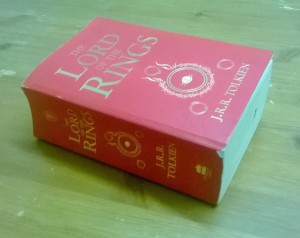Well- it’s New Year’s Eve, and time to reflect on what has gone on over the past year. For my family, this has been a big year, as we left the comfort and splendour of Oxford to return to our home city of Stoke-on-Trent; I graduated from university; I got my first job; we decided where we want to go with our life in the near and more distant future, thanks to an American man and his family on YouTube; I completed my first book of poetry, which had been languishing prior to this summer; I took the plunge and begun this blog, which is something I’ve wanted to do for a while; and have got back in contact with several family members that I haven’t seen for the best part of a decade thanks to Facebook. It has been eventful, and had also been emotional and tiring for all of us. Also, with any luck, next year should be just as eventful- beginning work; trying to get my book published; endeavouring to write the novel and short story collection that I’ve been planning for a month or so; and getting married. Yes: my partner and I are getting married next year!
———————————-
In terms of this blog, I will be getting up several ‘Thoughts on…’ posts for the books I have read recently- the first two Adrian Mole books, Penelope Lively’s ‘Heat Wave’, Jack Kerouac’s ‘On the Road’, and Tove Jansson’s ‘Finn Family Moomintroll’- in the new year, and hopefully will get the first few up on New Year’s Day. For now, though, I thought that I would highlight a selection of posts from this blog that have proved popular, may have been overlooked, or are of relative interest for me.
- Firstly, a bizarre yet infectious song about socks from a star of the YouTube community, who has influenced my partner and I in the way we approach life more than I can ever express, and which has gained me quite a few views: I’ve got my socks on!
- Graduating from Oxford: Graduation!
- …and the city we have returned to…: Stoke-on-Trent: The city that died
- This post about a Roman archaeological discovery in London has proved to be my most-viewed post on here, thanks to its inclusion on a history resource website in the Netherlands: The best Roman sculpture ever found in Britain: An eagle in London. (Here is the website with my page linked if you’re interested. They’ve given me free publicity, so I’ll give them a free plug too! Find my post part-way down this page on histoforum.net)
- For me, one of the biggest losses of the year: Seamus Heaney 1939-2013
- An archaeologically-inspired painting: Banksy’s ‘Cave Painting’
- Here are just a selection of my ‘Thoughts on…’ posts from this past year: Joseph Conrad’s ‘Heart of Darkness’; Anthony Burgess’s ‘A Clockwork Orange’; George Orwell’s ‘Animal Farm’ and ‘Nineteen Eighty-Four’ (in which I managed to mention Lady Gaga- you’ll have to read it to see how!); a selection of John Ruskin essays; Ernest Hemingway’s ‘The Torrents of Spring’, and Jostein Gaarder’s ‘Through a Glass, Darkly’.
- I also posted about a book that I got for 50p from our church fair, and which dated from 1725: A new purchase- Matthew Prior’s ‘Poems on Several Occasions’
- The irrepressible stomp of Global Warming has had an interesting effect on archaeology, and I posted on several new discoveries: Treasure from the Norwegian ice; More Iron Age treasures from Norway, and Two soldiers in the Italian ice.
- For no reason other than that they look nice: Eye eye!
- This year has been dubbed by some to have been the ‘year of the selfie’ (David Cameron’s badly-judged example with Obama notwithstanding…), and I’ve included three good ones: Pope Francis; Darth Vader, and an astronaut.
- An interesting discussion of jewelled relics and adorned human remains in archaeology: The jewelled saints of 16th century Europe, and other beautifications of the dead
I think that’s enough links to my other posts to be getting on with for now. Anyway- check some of these out if you haven’t already, or have a browse of the blog and see what you come across. Also, you can follow Electric Puppet on Facebook here: https://www.facebook.com/electricpuppetblog
———————————-
Lastly, here are a few fellow bloggers that I’ve come across in the past few months that you may find of interest:
A Corner Of Tenth-Century Europe (written by one of my Anglo-Saxon lecturers from Oxford; he has since moved on to work at Birmingham University)
I hope you have a very happy New Year, and that 2014 will be good for you.










